What I’m Playing Now: Ether One and Pokemon Channel
Click to read the full story: What I’m Playing Now: Ether One and Pokemon Channel
This week was a little bit light in gameplay because No Man’s Sky is essentially here. Still, I played through Ether One on the PS4 and watched some TV with Pikachu by firing up Pokémon Channel on the GameCube.
Let’s take a look at what I’m playing now!
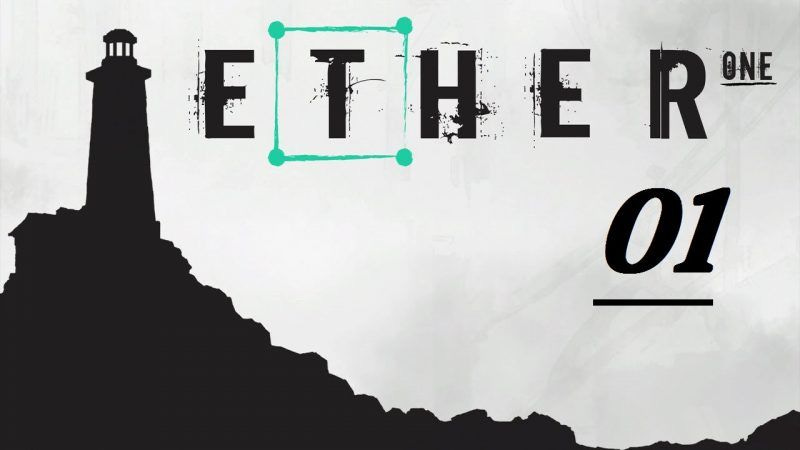
Ether One
I purchased Ether One from a GameFly sale a while back, and because it isn’t supposed to be very long (with No Man’s Sky looming for me, I don’t want to be tied-up with an involved title) and because it looks so interesting, I dove into it this week.
Things didn’t get off to a very good start at all. I was initially impressed with the ideas and environment of Ether One—just as I was when reading about these ideas and this environment—but it wasn’t long before the game’s crazy puzzles soured the experience for me.
Before I highlight my frustration with these puzzles, here’s some (spoiler-free) background information about Ether One. You play as a Restorer, or someone who is transported into the mind of an individual who is encountering some sort of mental disorder (in this case, dementia) to explore his or her thoughts and ideas, find the source of the disease or issue, and eliminate it (or more likely, them). The environments are colorful and vivid, although not necessarily graphically stunning, and the well-suited musical score, expert presentation, quality voice acting, and overall atmosphere result in a very unique and attention-grabbing experience.
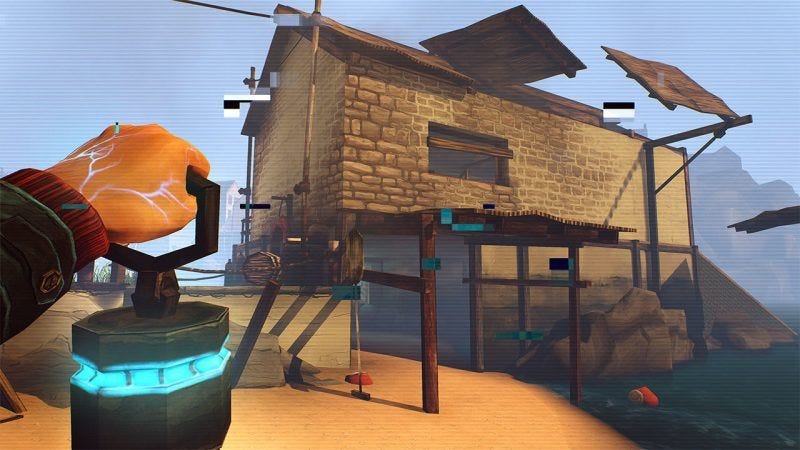
While you’re exploring the mind of the sufferer, puzzles which reveal important components of her past can be solved. Alternatively, you can pass them up altogether and simply enjoy the story. Given that I didn’t initially know this (my mind was elsewhere when the guide was explaining), and that I always try to complete a game like I’m reviewing it at launch (without the help of online guides), those who have already played the title can guess that a collision was imminent.
The fact is that some of the “puzzles” within Ether One—which predominantly require the player to search nearby locations for clues—are ridiculous. The entire game is supposed to last only three hours, but for about this amount of time, I searched the second stage for a hint—some indication of how I was supposed to proceed—to no avail. Eventually, I gave in and looked up an online guide.
The first unsolved puzzle is one that I take responsibility for. I needed to find a safe in a bar—which I knew about—but was unable to locate it. While the safe’s location was fairly easy to discern, the code required to gain access to it wasn’t, and I’ll openly admit I probably wouldn’t have been able to solve it on my own (I didn’t even know you could interact with the particular item that led to the safe). I also don’t see the angle of the solution—I was looking for levers and buttons, not what the game expected of me.
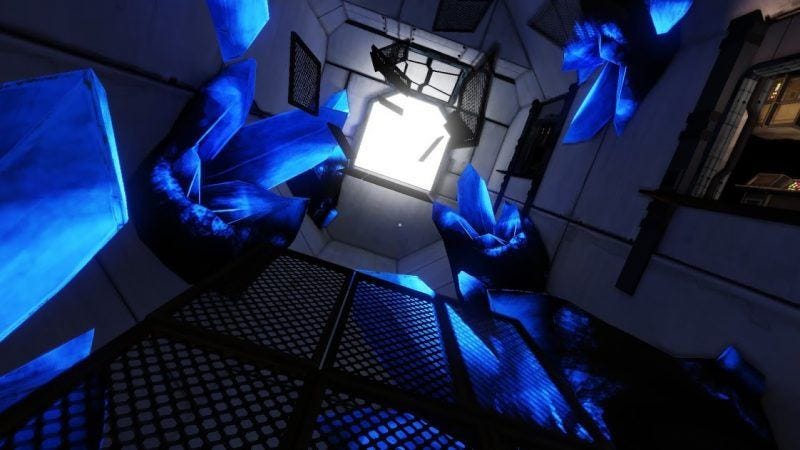
I will claim zero responsibility for the second “puzzle” that “stumped” me. I scoured the entire stage from top to bottom, looking for a key to a door that obviously needed to be accessed to complete the puzzle. It turns out the error I made here—what opened this locked door—wasn’t a key or a lever that I missed but was the initial door that provided entrance into the establishment. That’s right—I forgot to close the door that led me into the building with the locked door, which opened it.
Angry, frustrated, and out of a relaxing afternoon after discovering this, I put Ether One on ice. I needed to calm down before (and if) I started over. I know a team of six or so talented coders created the game, but allowing anyone to play through it—not test it, but play it—would have demonstrated the issues with its puzzles. While they’re optional, players like me will want to complete them solely because they’re a part of the experience. After running around for nearly three hours on a single stage of a four-hour game, a hint, a possible solution, or another bit of advice would have been much appreciated. It’s as if, in the midst of creating an intimate and personal experience, the developers became so engrossed that they forgot to see the title through the eyes of a new player who is completely unfamiliar with everything it offers.
After a few days I had relaxed enough to give Ether One another shot. This time, I wouldn’t be afraid to consult guides as necessary or skip puzzles entirely.
I followed guides closely when I needed to and solved each puzzle, given that I had the answers at my disposal. Things were going smoothly for a good portion of the game until I encountered a glitch. After completing each step of the puzzle associated with an area, the game simply didn’t register my actions. I tried repeating previous steps to assure that the error wasn’t on my end—which it wasn’t because I once again followed a video guide identically. A mass-generating specific item further confirmed my suspicions of an error in the title.
Disappointed but not entirely dissuaded, I abandoned the puzzle (and most others—I couldn’t complete all twenty and had no interest in traversing through them because of this) and decided to find the ribbons on the level so that I could proceed to the next. Once I did, Ether One pushed me yet again. I found all the ribbons, but the door that they’re meant to unlock remained sealed. I found that I needed the level’s artifact, but the game didn’t inform me. I reloaded the save, the instructions came, and I found the artifact (after trying to find an error on my end for some time).
I continued not because of some underlying compulsion—I’ve quit playing games for causing me far less frustration in the past—but because of Ether One’s quality story, intelligent ideas, and engrossing overall content. It’s a well-made title full of inspiration and meaning, and even in the face of this aggravation, the story was good enough for me to complete it.
The final verdict I arrived at is that if Ether One looks appealing to you, buy it. It’s being sold for an affordable price, and there’s really nothing else like it on the market. However, the key to enjoying the experience, in my opinion, is to relax through the puzzles. Don’t be afraid to consult guides, or better yet, skip the projectors entirely. The undue frustration that they can cause—often because of an overlooked point (how the hell would that hammer smash through the wall?)—is considerable, and more pressingly, draws away from the game. Furthermore, glitches and questionable level designs can also inhibit one’s progress. If you’re like me and automatically view the above suggestion as a challenge to play through without using a guide, consider the fact that elements beyond your control can also halt your movement.
The problem is, it’s difficult to distinguish between your errors and those made by the game.
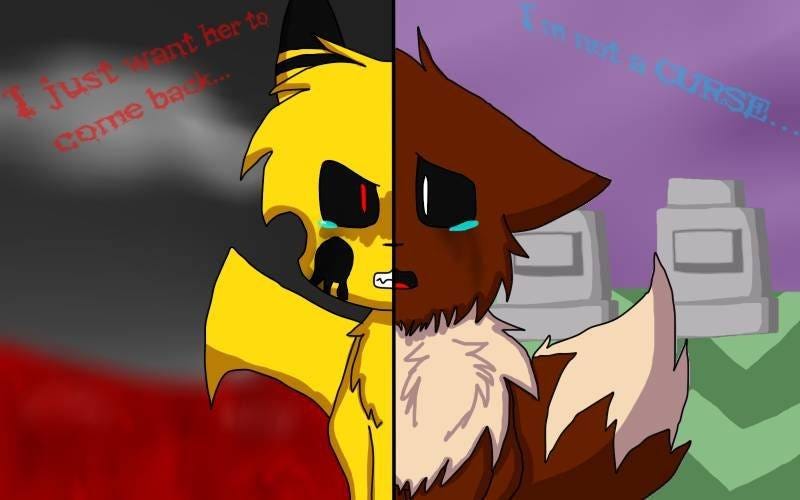
Pokémon Channel
Feeling equal parts nostalgic and intrigued, I decided to take another stroll down memory lane this week by playing Pokémon Channel—the critically panned, underselling, and largely forgotten 2003 GameCube title where players enjoy the best of television with Pikachu.
In my younger days, I had a lot of fun with Pokémon Channel. I loved buying items on Squirtle’s shopping channel, watching the weather with Psyduck, traveling to new areas, unlocking even more channels, and simply enjoying the atmosphere of the game.
Somewhere between my childhood and adulthood, I begrudgingly accepted the existence—and to a lesser extent, the validity—of some critical complaints. Still, it was hard for me to comprehend why the game didn’t garner more attention and respect. I nevertheless had a good—albeit entirely different—time while playing today, and I’m now forced to bring attention to a disturbing trend: that of the popular culture wave.
Pokémon Go is nothing short of a cultural phenomenon, at this point. Downloaded over one hundred million times since its July 6 launch, the “game” has been and is featured on most every nightly news installment, news website, and newspaper. Simply putting Pokémon Go in the title of a one hundred word “article” will attract attention.
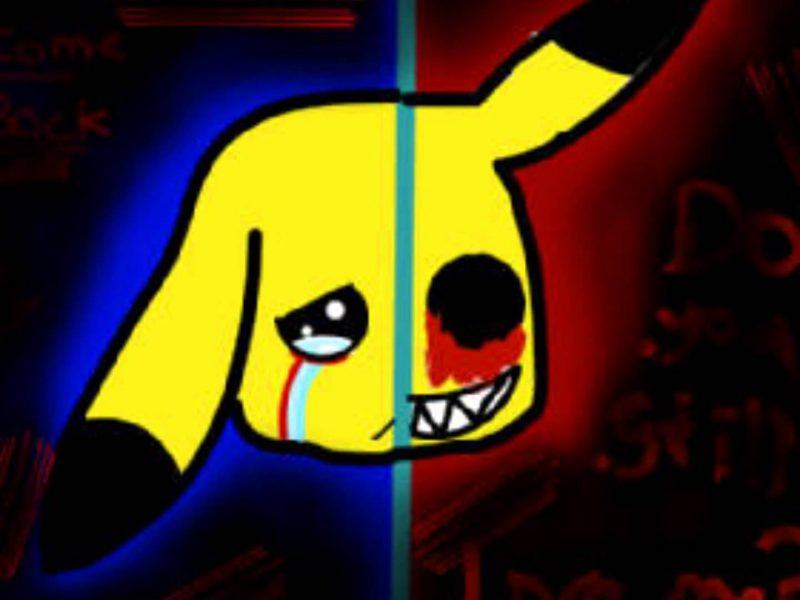
The issue with this unprecedented success lies in the game’s core concept: players walk around and catch Pokémon. There’s no story, no pressing objective, no stress, and no challenge. Compared directly with Pokémon Channel’s core concept—watching TV and exploring with Pikachu— Go doesn’t seem that different. While it is true that Go encompasses GPS technology, encourages players to walk, and is accessible on mobile devices, it shouldn’t take more than five minutes for any player to ascertain that, for better or worse, there isn’t a whole lot of depth to the software.
Furthermore, Channel is a multi-layered, life-defining, emotionally charged, intelligent piece of media when compared with Go; there was simply much more thought put into its creation.
The aforementioned big difference between the two titles is their reception. While Pokémon Channel was called shallow and boring, people are quitting their jobs and walking off cliffs in attempts to capture new Pokémon in Go. While Channel was critically pandered (earning 5/10 ratings from IGN and Gamespot), Go has been issued more moderate numbers (7/10 ratings from IGN and GameSpot once again).
To be blunt, we gaming fans taken some massive steps backward in the last thirteen years, both in critical standards and personal opinions. I knew Pokémon Channel was stupid when I enjoyed it all those years ago—I’d played other games, and even at that age, I was aware of the potential quality software could boast—but I still had fun. Today, the critics are praising Go, and millions are being emotionally moved by it; others are simply having fun while playing.
Imagine what would happen if, in an alternate reality, Go was released all those years ago, in some form or another. It would likely have been panned and questioned for its concept and content while being further ridiculed for its bugs and glitches. Now, in 2016, it’s loved by masses.
What will people think fifty years from now when they read about the Pokémon Go craze, and perhaps even watch some gameplay footage?
Purchases
None for this week—you can’t force a deal. Besides, a couple of extra dollars in my wallet won’t hurt—No Man’s Sky isn’t free!
We’ve finally done it—No Man’s Sky is here. I don’t know if I should be happy it’s releasing or worried that its release date has already arrived, so I’m just going to take it easy on the thinking and play the game.
Until next week!
PS—angry Pokémon Go-lovers can feel free to voice their disdain for me in the comments section.
The post What I’m Playing Now: Ether One and Pokemon Channel appeared first on Movie TV Tech Geeks News By: Max Smith
